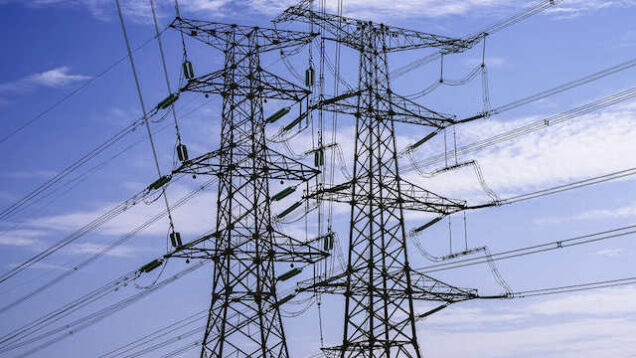NEWS
Power sector falls by 45% as generation dips by 1,119.6MW

Nigeria’s power sector decreased in growth by 45 per cent in real term in the third quarter of this year when compared to the preceding quarter, data from the National Bureau of Statistics showed, TopNaija reports.
Also, industry figures obtained in Abuja on Thursday showed that after posting a peak generation of 5,008.9 megawatts on December 7, 2021, the figure dropped by 1,119.6MW to an off peak of 3,889.3MW on December 8, 2021.
A document on Power Sector Data Review, which was presented by the NBS at the 1st Abuja Electric Power Conference and Exhibition organised by the Abuja Chamber of Commerce and Industry, also stated that the contribution of the sector to real Gross Domestic Product decreased in third quarter 2021.
This came as experts and operators at the conference called on the Nigerian Electricity Regulatory Commission to efficiently and sustainably enforce the sector’s market rules to allow the business function as required.
The NBS power review report stated, “In real terms, the sector grew by 14.36 per cent in Q3 2021, an improvement from the growth rate of –3.66 per cent recorded in the same quarter of 2020.
“When compared to the immediate past quarter, there was a decrease of 63.80 per cent points from 78.16 per cent recorded. Quarter-on-Quarter, the sector grew at a rate of -45 per cent.”
It added, “The contribution of this sector to real GDP in third quarter 2021 was 0.40 per cent, higher than 0.36 per cent recorded in Q3 2020. This figure in 2021 was lower than 0.80 per cent recorded in Q2 2021.”
Expressing concerns over the poor performance of Nigeria’s power sector, the President, ACCI, Al-Mujtaba Abubakar, said market forces and principles should be allowed to operate within the sector.
He said, “The sector cannot perform efficiently and sustainably if market rules are not allowed to function. This is even more germane now that global governments are suffering from dwindling revenue.
“All indices confirm that government cannot sustain continuous intervention in the sector. We believe efficient regulatory actions will go a long way to ensure all stakeholders play their part across the value chain.”
Abubakar added, “A situation where regulators are reluctant to enforce established regulations can create distortions within the system.”
Also, stakeholders at the conference observed that there was regulatory weakness pervading the system, according to the communique issued at the end of the event.
It read in part, “The regulator is considered too weak or too unprepared to enforce clear regulations (Grid Code, Market Rules, etc) to which operators are expected to abide.
“The lack of regulatory enforcement weakens the system and encourage operators to flout establshed rules.”
They stated that there was no consequence management system in terms of holding accountable violators of regulations among the operators.
“Operators take advantage of this weakness leading to worsening service delivery and growing gridlock within the system,” the communique stated.








